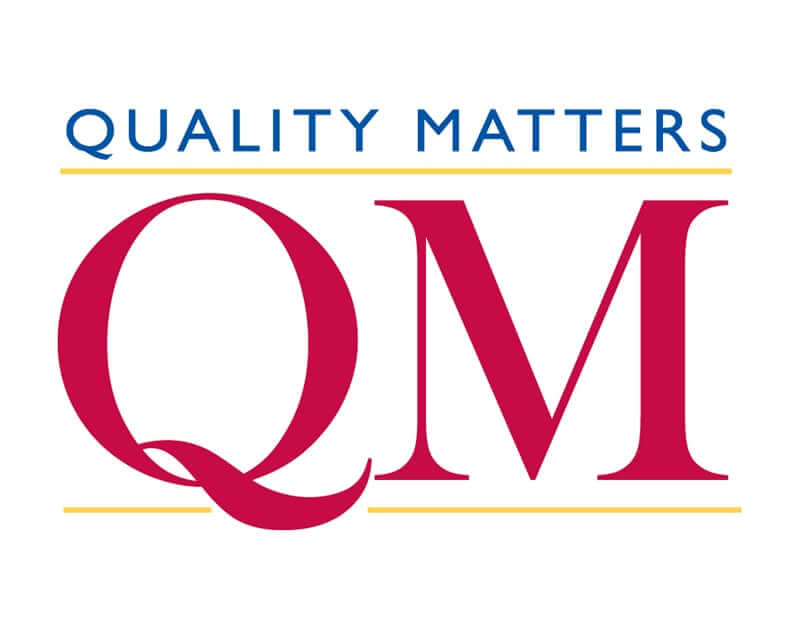The Quality Matters (QM) Higher Education Rubric, Seventh Edition, 2023, is a set of eight General Standards and 44 Specific Review Standards used to evaluate the design of online and blended courses. Annotations explain the applications of the Standards and their inter-relationships. The Rubric has a scoring system used by the Review Team to determine whether a course meets Standards. Essential Standards (3-point Specific Review Standards) must be met during the review and an overall score of 85% of the points possible are required for a course to attain QM recognition.
The Eight General Standards

- Course Overview and Introduction
- Learning Objectives (Competencies)
- Assessment and Measurement
- Instructional Materials
- Learning Activities and Learner Interaction
- Course Technology
- Learner Support
- Accessibility and Usability
When and How Do I Use the Rubric?
The Rubric is intended for use with courses that are delivered fully online or have a significant online component (hybrid and blended courses). The Quality Matters Rubric can be used in the following ways:
- Course Design – The Rubric may be used as a framework for designing online and blended/hybrid courses.
- Self-Reviews – These allow faculty to conduct their own reviews prior to submitting their courses for official reviews.
- Internal/Informal Reviews – Informal reviews are conducted (at no charge) in preparation for QM formal/official reviews or for quality assurance purposes.
- Official/Formal Reviews – Through an official course review process (UAB-Managed), a course meeting standards may carry the QM logo that recognizes and promotes it as a course that meets national standards of quality.
How Do I Obtain Access to the Rubric?
Note: This download is intended for single use only. Please do not duplicate and distribute without written permission from QM.